Crash: Some South African players welcomed directive to take knee as it took heat off them in their communities
The BLM narrative in South Africa has become so twisted some players were relieved by the take a knee directive as they did not have to answer to their conservative communities.
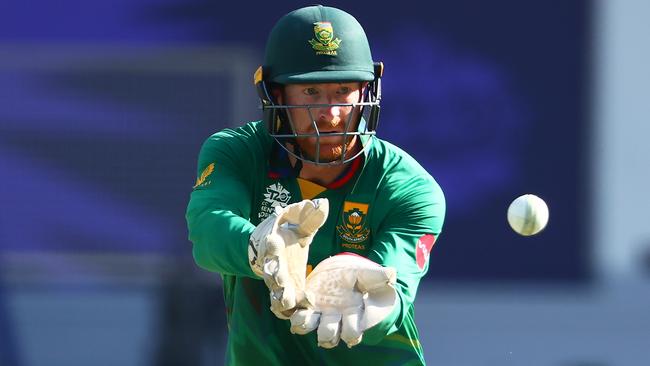
Cricket
Don't miss out on the headlines from Cricket. Followed categories will be added to My News.
Only one man could solve the vexed issue of South Africa’s Black Lives Matter crisis … sadly he died eight years ago.
Nelson Mandela, with a firm but somehow silken touch that made him the great man he was, would have been the one voice everyone would have loved to hear from after Cricket South Africa ordered players to take a knee supporting the Black Lives Matter movement.
What Mandela would have made of it is anyone’s guess … so let’s have one.
Catch all the ICC T20 World Cup action live & exclusive to Fox Cricket, available on Kayo. New to Kayo? Start your free trial today.
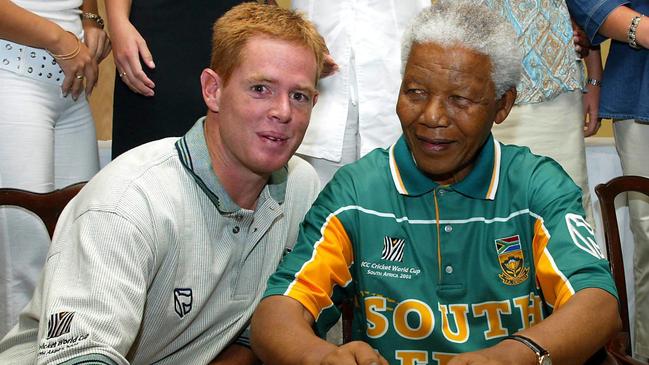
As a man of nuance, patience and empathy he surely would have loathed the fact that South African officials had to make their point with a sledgehammer and pointed finger.
Maybe he would have argued that ordering players to take a knee is like ordering a player to go to church.
It defeats the purpose of what should be a voluntary gesture. Maybe a simple urging from Mandela would have been enough for the team to do it without having to follow orders.
Debate is raging in South Africa about the issue but the majority opinion is that taking a knee is a simple, painless gesture that would have united cricket followers.

It has become such a twisted narrative that reliable sources confirm that far from being outraged at the order, three players (Heinrich Klaasen, Dwaine Pretorius and Anrich Nortje) were ‘relieved’ when the CSA directive came through.
While an angry Quinton de Kock went the other way and abandoned ship, it gave this trio the opportunity to tell their conservative ‘communities’ that they weren’t ‘defying’ them but simply complying with instructions from their employers.
Klaasen and Nortje stood with hands behind their backs in the photo published by News Corp, Australia, before the Proteas World Cup game against Australia on Saturday night.
There have been whispers that South Africa’s decision to order its players to take a knee might not stand up to a legal challenge in court but, according to respected scribe Neil Manthorp, that is the least of their concerns.
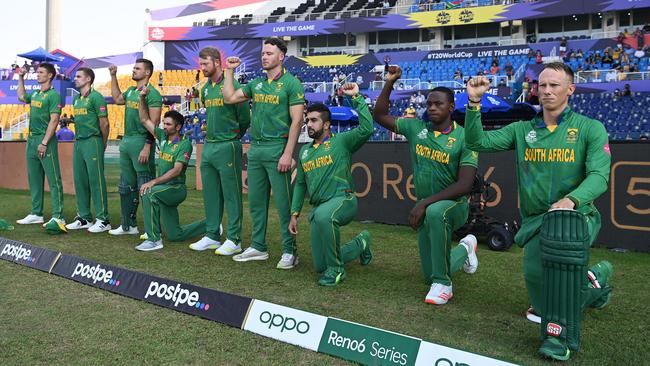
“It may be constitutionally impossible to force players to behave in the same way, and there is, indeed, much to be said for freedom of expression and personal choice,’’ Manthorp wrote in South Africa’s Business Day.
“But just as restaurants have the right to refuse entry to unvaccinated patrons, CSA has the right to select players who adhere to its preferred standards of behaviour.’’
Initially the Proteas decided against taking a knee but that left the black players in the team feeling they were letting down their race. That resulted in the decision to let each man make his own choice which sounded fine in principal but looked cringe-worthy and disjointed.
Manthorp felt taking a knee was the obvious option.
“Racism and prejudice exist everywhere in the world and it has been institutionalised in many countries, but South Africa has the ‘distinction’ of being the last country on earth to formally, legally rid itself of such heinous legislation.
“If some white cricketers are concerned about a backlash from their friends and family about taking a knee for a few seconds, they might do well to research some of the real sacrifices made by people of colour in the fight against apartheid.’’
Like of course, Mandela
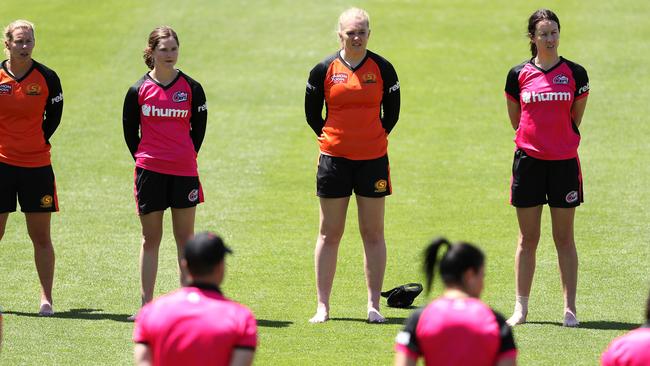
Two WBBL players refused to take knee, de Kock not first
Quinton de Kock is not the first South African cricketer to refuse to take a knee before games with the issue rearing its head during last year’s WBBL, but his refusal to play the game has taken the controversy to another level as it has been revealed South African players have received death threats in the past for participating in the gesture.
Two South African players with Sydney Sixers rejected calls to take a knee before last year’s tournament but agreed to join in a taking a barefoot circle ceremony with teammates as an anti-racist gesture.
De Kock’s refusal to take a knee and subsequent withdrawal from the South African T20 World Cup side overnight has caused a sensation in world cricket.
The exciting wicketkeeper batsman refused to take the field after Cricket South Africa, responding to a controversy over some players not taking the knee before the first match against Australia, ordered the side to make the gesture associated with the Black Lives Matter movement.
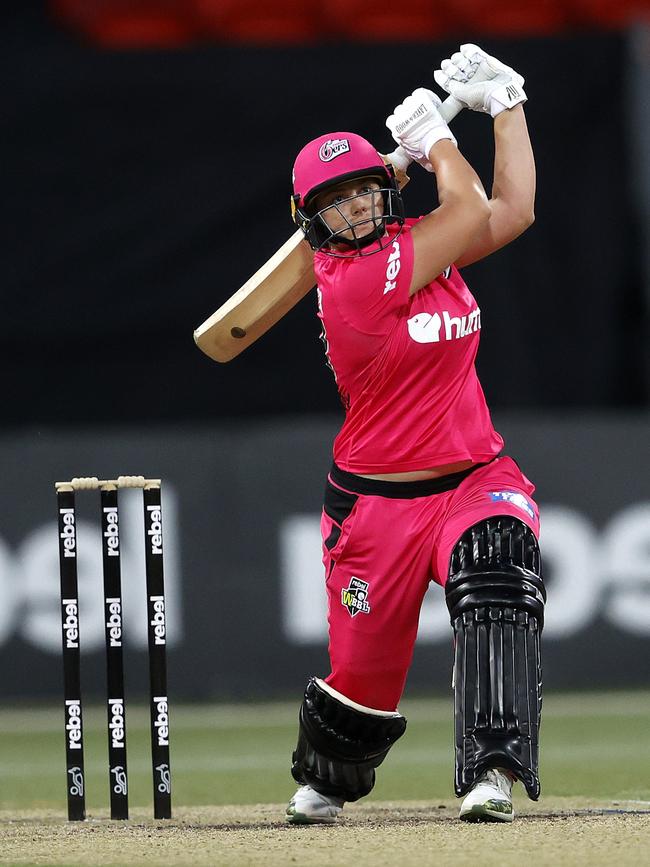
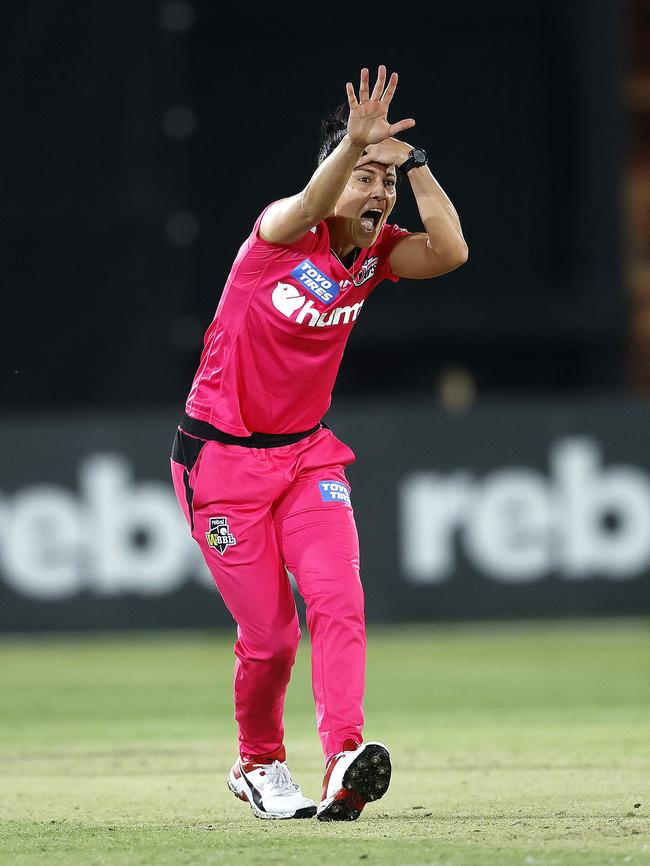
South African couple Marizanne Kapp and Dane Van Niekerk told teammates they only took a knee before their god and would not be making the gesture before the first match in 2020.
The former Sixers women decided that they would not take a knee because they did not wish to isolate their teammates and focused on the barefoot circle.
The Sixers men’s side did after West Indian Carlos Brathwaite persuaded the side, which includes Indigenous all rounder Dan Christian, that it was an appropriate gesture.
Niekerk is playing with the Strikers this year and Kapp the Scorchers.
Cricket South Africa director Graeme Smith revealed that teams and players had received death threats after taking a knee during a domestic tournament last year and at least one player is understood to have said he could not during the BBL because of right wing extremists at home.
“It’s been a really challenging experience. All of us have found ourselves in a really heated space,” Smith said in December. “We’ve taken an immense amount of abuse, death threats. It’s been an eye-opening experience. It has shocked me how heated things have got.”
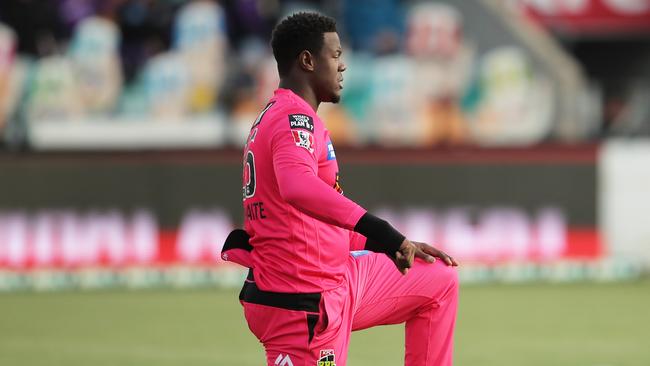
De Kock’s withdrawal has created a sensation in world cricket with some condemning the cricket board for mandating the act and others criticising de Kock for his stance.
His captain, Temba Bavuma, spoke about the issue after the side beat the West Indies in the game.
The skipper said the side was told before the 90 minute bus ride to the ground that it would be expected to take a knee but he only found out about de Kock’s decision after they arrived.
“As a team, we are surprised and taken aback by the news. Quinton is a big player for the team, not just with the bat, but from a senior point of view, so not having this at my disposal, as a captain, is obviously something I wasn’t looking forward to,” Bavuma said.
“In saying that, Quinton is an adult. He is a man in his own shoes. We respect his decision, we respect his convictions, and I know he will be standing behind the decision he has taken.
“I found out as the captain when I got to the changing room. There wasn’t a great deal of time for us to thoroughly discuss this matter. Unfortunately, it was a matter of us digesting what we’ve been told and finding a way to move forward.”
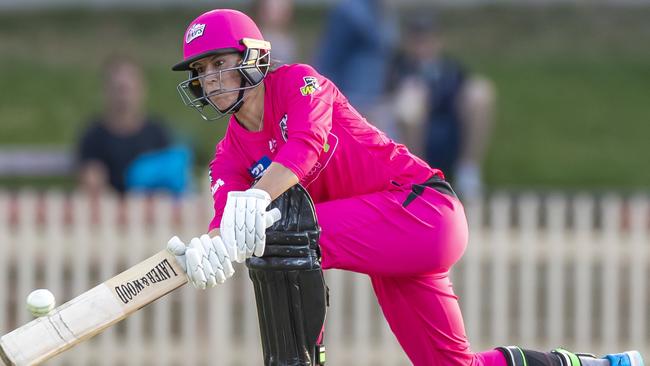
Bavuma said it was “probably one of the toughest days I’ve had to deal with as a captain, as a leader of the team, for obvious reasons with the off-field matters.
“Unfortunately, we had to get the job done. There was still a game of cricket for our country. It was important that as much as everything was happening we found a way to get into the right mental space and take it home for our country.
“We have a few days before the next game and I think those days will be tough for the group. Guys who want to know in terms of his decision, will use that time to find out a bit better.
“Quinton is an adult. He made his decision. You have to respect it, whether you agree with it or not.
“As much as you have the choice to decide what you want to do, you can’t escape the consequences of the choices and decisions we make. If there are people out there who think certain people need more clarity, then the fans, the media, it’s best that you ask those guys directly. It becomes blurry when you are asking guys about other guys. If you are really wanting to get the clarity that you seem to want, you should probably ask those individuals themselves.”
South African journalist Lungani Zama defended de Kock against charges or racism.
“Quinny just took umbrage at the fact there was an instruction given with no choice for players,” The Guardian writer said on SEN Breakfast.
“Given the amount of time South Africa have had to take a definitive, collective stance on it and then they’ve almost made up the rule in the middle of a tournament ahead of a must-win game.
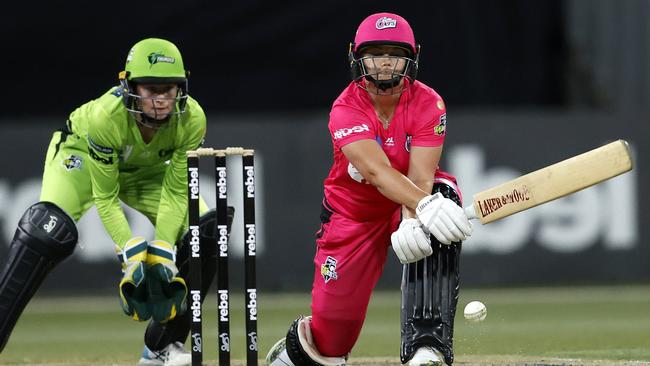
“The previous board had said to them that every player is allowed to express themselves in whichever way they deem fit. To suddenly change that on the eve of such an important match …
“I’ll qualify it by saying Quinton de Kock, if you’re asking me if he’s racist or against Black Lives Matter, I’ll unequivocally say no because I know him personally.
“I know the work that he’s done to improve the lives and experiences of black players and black people around him for years and years, long before Black Lives Matter was a trend on social media.”
“I think because their constitutional rights were taken away from them, it was an instruction from the boss when it hadn’t been previously discussed,” he added.
“Added to that, from my conversations with him before, he sees it as a token gesture which has been watered down to almost mean nothing. It’s something that you have to do to be seen to be doing the right thing.

“His preference is to actually do the right thing, which he does in the way that he lives, the way that he interacts, and the way that he treats people of all races.
“It’s the token gesture for him that’s the issue.”
Former ICC chief executive Malcolm Speed told SEN that CSA had “overreached in imposing this obligation on their players” because it “moves player contracts into moral and ethical issues”.
ABC commentator and former Australian rules player Tony Armstrong said he found de Kock’s gesture surprising.
“We’ve seen sporting teams right around the world start to get behind this movement,” he said.
“So for him to not do that, all that I think — and this is my own personal opinion — the question has been bubbling in my mind is how racist do you have to be, to not just take a knee and do that in conjunction with your teammates to show support, to even pretend to show support? You’ve got to be pretty strong on your conviction not to.
“At the very best it is confounding, confusing and puzzling.”
Cricket South Africa released a statement about the directive before the game.
“Concerns were raised that the different postures taken by team members in support of the BLM initiative created an unintended perception of disparity or lack of support for the initiative,” it read.
“After considering all relevant issues, including the position of the players, the Board felt that it was imperative for the team to be seen taking a united and consistent stand against racism, especially given SA’s history. Several other teams at the World Cup have adopted a consistent stance against the issue, and the Board felt it is time for all SA players to do the same.”
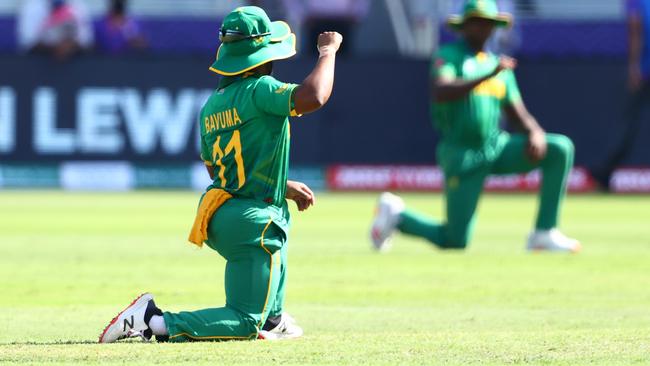
Legal minefield: Can players be forced to kneel?
An Australian who was formerly the boss of world cricket has questioned whether South Africa had the contractual right to order its players to take a knee in the T20 World Cup.
Former Cricket Australia chief executive Malcolm Speed has been a long time advocate of racial equality in cricket but believes South Africa’s decision to instruct its players to take a knee supporting the Black Lives Matter movement was “a step too far.’’
The move prompted the team’s best player, Quinton de Kock, to withdraw from last night’s match against the West Indies, and he is expected to be ruled out of the tournament.
“I support the Black Lives Matter movement – I would have taken a knee,’’ former International Cricket Council chief executive Speed told News Corp.
“But I think this (directive) is a step too far. It arguably goes beyond South Africa’s obligation under their contracts which is for players to play cricket and abide by reasonable direction. But it is a very delicate legal issue.
“Professional sport and cricket is highly regulated. Players enter into a contract and there are largely things they are told not to do rather than positive obligations.
“When you get to ethical and moral issues I think that crosses the line as to what you can direct them to do.
“It becomes a legal issue. I have not seen the South African contract. I would expect it would contain a clause that would require them to follow reasonable directions. That raises the issue whether this is a reasonable direction. That is the sort of issue that could end up in court although I would be very surprised if it were to happen.’’
Religion or racism: why won’t players kneel?
Minutes after CSA’s release was issued, it was announced de Kock had withdrawn from the Windies match due to “personal reasons”.
His future status remained unclear. Television reports from Newzroom Afrika claimed he had left the team’s Dubai base and would fly home but team captain Temba Bavuma was unsure of that.
“As a team we are obviously surprised and taken aback by the news,’’ Bavuma said after last night’s win over the West Indies.
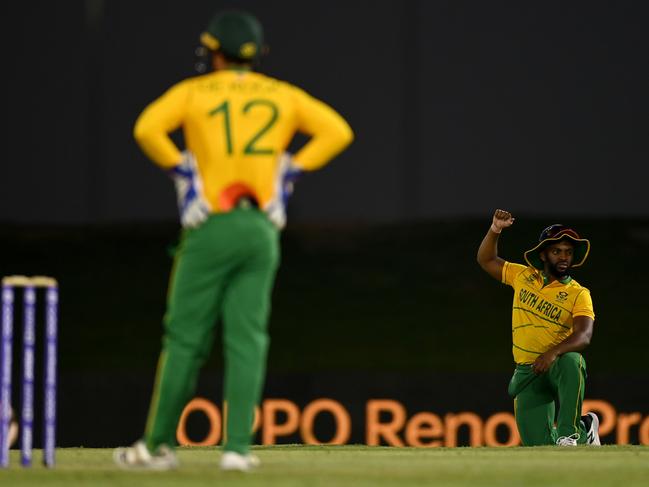
“Quinton is an adult. He’s a man in his own shoes. We respect his decision. We respect his convictions. I know he will be standing behind whatever decision he has taken.
“I don’t know how it’s going to develop. It wouldn’t be my decision whether to replace Quinton or get a substitute.’’
Later it was confirmed he had left the team base in Dubai before the team’s comfortable victory against the West Indies.
De Kock appears unlikely to play any further role in the tournament and his future as an international player is now in extreme doubt.
His gesture was in direct response to the directive from the South African board.
This will confirm it why he pulls out today... @plalorpic.twitter.com/pzOJ5fhZSB
— Jophin J (@j_jophin) October 26, 2021
🇿🇦 Cricket South Africa believes success both on the field and beyond the boundary will be guaranteed if all South Africans stand united to build a new innings based on the pillars of inclusivity, access and excellence.
— Cricket South Africa (@OfficialCSA) October 26, 2021
âž¡ï¸ Full statement: https://t.co/j9MDE1Ct1Zpic.twitter.com/WjRlZ8SmUG
Pommie Mbangwa in the Comm Box about BLM movement:
— Prasenjit Dey (@CricPrasen) October 26, 2021
"Lack of support for the initiative essentially means lack of support for people of colour within the team, in SA and in the world as a whole. Excuse me if I sound Political, but I can't shed my skin."#T20WorldCup#SAvWI
The board edict to take a knee started with Tuesday night’s match against the West Indies – even though there are members of the team who don’t feel comfortable doing so.
De Kock’s response has left their campaign in a state of political disarray.
The extraordinary development comes after a News Corp report highlighted a Getty photograph from the Proteas opening World Cup game against Australia, where players took a disjointed approach to the silent protest against racism which has been taking place at cricket matches in response to the Black Live Matters movement.
Cricket South Africa have reacted to the perception that the team was divided.
Fast bowler Anrich Nortje and Heinrich Klaasen distanced themselves from the movement by standing with hands behind their backs, and it’s understood some Christian South African players have distanced themselves from the protest because it was “against their religious beliefs”.
Some white Afrikaans players have come under pressure from their families and communities not to take the knee – but there is little sympathy for their predicament, especially as Rassie van der Dussen – who hails from a very Afrikaans family in the very Afrikaner town of Potchefstroom – has been a strong advocate of taking a knee alongside teammates of colour.
Former Zimbabwe Test player Pommy Mbangwa and former West Indian skipper Darren Sammy criticised the South African’s division on the issue.
“Sometimes I don’t understand why it is so difficult to support this movement if you understand what it stands for,’’ Sammy said.
“What my kind have been through. There are other issues affecting the world but I cannot understand why it is so difficult.’’
Surely it’s down to the individual to decide whether he or she wants to be involved in any movement … A Cricket board should request players to do it but if that individual decides they don’t want too it should not stop them playing the game of Cricket … #T20WorldCup#DeKock
— Michael Vaughan (@MichaelVaughan) October 26, 2021
Naidoo said it was important South Africa of all countries took a united stand and players have been told to take part as one.
“A commitment to overcoming racism is the glue that should unite, bind and strengthen us,” he said.
“Race should not be manipulated to amplify our weaknesses. Diversity can and should find expression in many facets of our daily lives, but not when it comes to taking a stand against racism.
“South Africans were recently joined by people across the world in celebrating the 90th birthday of our revered Archbishop Desmond Tutu. What better tribute from the Proteas to an icon of the struggle for freedom in South African than to demonstrate we are working to fulfil his vision of a united South Africa.”
The photo that reveals South African divide over BLM
Is this photo an example of players celebrating the right to make an individual choice in a team game – or is it just plain awkward?
It is the photo which proved how three simple words – Black Lives Matter – continue to be at the centre of cricket’s most emotive internal debates.
Former South African manager Dr Mohammed Moosajee had urged the South African team to take a unified approach to taking a knee at the T20 World Cup, but the advice was ignored and players were given several options.
They could stand to attention, take a knee, raise a fist or do both before the game against Australia (all Aussie players took a knee).
The result showcased the widely contrasting views of the Rainbow Nation.
Three players of colour, including fast bowling star Kagiso Rabada, plus batsman Rassie van der Dussen, knelt and raised a fist, while several other players stood and held their fists aloft.
Fast bowler Anrich Nortje and keeper Heinrich Klaasen distanced themselves from the movement by standing with hands behind their backs.
The contrasting views threw up some interesting dynamics.
Nortje, an Afrikaner from the working-class, blue-collar town of Uitenhage just outside Port Elizabeth, is close friends with Rabada, with whom he plays at Delhi Capitals in the Indian Premier League, forming a highly successful fast bowling partnership.
They are united by cricket despite having divergent opinions on taking the knee.
In the biggest match of the tournament India took a knee, Pakistan did not.
Most sides debate the issue and take a collective stance.
South Africa decided every man should be able to speak for himself, a victory for freedom of speech but perhaps not for team unity, or at least the visual impression of it.
The debate about whether to take a knee started in South Africa over a year ago when fast bowler Lungi Ngidi was asked whether he believed the team should adopt the gesture.
His reply was: “I think we should certainly discuss it.”
Though he fell short of insisting it should happen, his words drew a stinging response from former South African players including spinner Pat Symcox, who said “What nonsense is this? He must make his own stand if he wishes. Stop trying to get the Proteas involved in his belief.”
As Test great Michael Holding emotionally urged players to take a knee, former South African Test batsman Boeta Dippenaar said the BLM movement was “nothing more than a leftist political movement”, adding: “All lives matter”.
A statement released by Cricket South Africa only confused the issue when it said the team had shown its support for the movement for another reason – violence against women – and that, although they also supported anti-racism initiatives, they would not be taking a knee.
This led to a fierce backlash and a compromise was reached in which players would be free to express themselves in whichever way they felt was appropriate.
Some white South African players said the gesture was “against their religious beliefs” with claims that “A good Christian man only takes a knee for two people – his wife and his God.” But these words were challenged by those who could not find such words in the Bible.
There is no question that some of the white, Afrikaans players have come under pressure from their families and communities not to take the knee, but there is little sympathy for their predicament, especially as Rassie van der Dussen – who hails from a very Afrikaans family in the very Afrikaner town of Potchefstroom – has been such a strong advocate of taking the knee.
Van der Dussen said he would rather be criticised for doing something than doing nothing.
More Coverage
Originally published as Crash: Some South African players welcomed directive to take knee as it took heat off them in their communities






